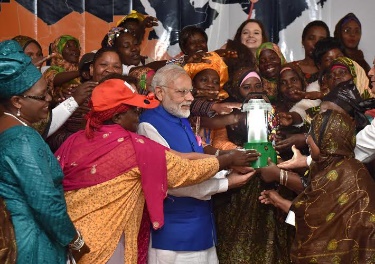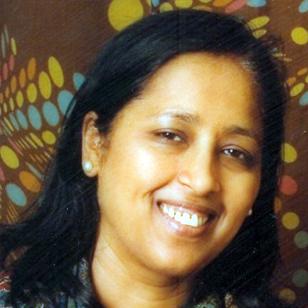South-South Cooperation between India and Africa: Advancing the 2030 Agenda for Sustainable Development
From 29th November to 1st December 2016, the Knowledge Centre for Sustainable Development of the United Nations System Staff College offered a new course entitled “UN Catalytic Support to South-South and Triangular Cooperation in Implementing the 2030 Agenda”, where I had the opportunity of being a resource person and interacting with practitioners of South-South and Triangular Cooperation from Asia, Africa, Europe and North and South America. We deliberated on the practical aspects of implementing the 2030 Agenda through South-South engagements, such as between India and Africa.
Considering South-South Cooperation (SSC) in the context of the 2030 Agenda for Sustainable Development leads one to surmise the following. First, to carry forward the ambitious development agenda as outlined in the 17 SDGs, huge financing is required. Second, in an increasingly globalised world, issues, such as poverty, inequality, conflict and climate change, amongst others, have an adverse impact on every nation and are of global concern. Third, to achieve the SDGs in their all comprehensive social, economic and environmental dimensions, Africa’s development is inextricably tied with the economic destinities of both the North and the Global South.
This write up aims to highlight the ongoing India-Africa engagements within the framework of South-South Cooperation and how they are furthering, even if in a modest way, the SDGs for the billion plus peoples on the continent. Evidently, the axial concept is inclusive development. The major enabler for achieving such progress is through the transfer of capabilities-financial and technical, sharing of developmental experiences and knowledge.
Financing for Development
In the background of declining Overseas Development Assistance (ODA) and dwindling resource contributions (estimated at only 16.8 % of the total development finance) from the traditional donors [1], the ‘Addis Ababa Agenda’ has rightly foreseen the need for alternative avenues for financing development from non-ODA sources as well. Domestic, private international capital flows, private–public partnerships (PPPs) and blend portfolios will be the dominant mechanisms for financing development in the years ahead.
India’s Development Compact
India is supporting development in Africa through four major modalities: aid, grants, trade and lines of credits (LoCs) (concessional and non-concessional). Of these, the latter two are predominant. Countries that are disadvantaged (LDCs, HIPCs, conflict impacted or land-locked) qualify for concessional assistance.
Africa Trade and Lines of Credits
India-Africa trade is currently estimated at about 72 billion USD [2].India has a negative trade balance with Africa because the aggregate of imports; hydrocarbons, metals, mineral and select agro-products such as cashew, exceed her total exports. The challenge for India is to design cooperation mechanisms such as through the intra-South transfer of capabilities, to rectify the trade imbalance. India-Africa trade and investments in infrastructure projects are undertaken by private and public sector entities, wherein the former plays a lead role. Some of the project financing is though the Indian government supported LoCs. These LoCs are request based and aligned to the national development priorities of the recipient countries.
India shares her developmental experiences and transfers technical capabilities in the social sectors, inter alia, healthcare, agriculture and education, mainly through trade and FDIs.
Sharing Developmental Experiences in the Health Sector
India has earned the sobriquet of the ‘pharmacy of the world’. She is a major exporter of pharmaceutical products, including lifesaving low cost generics and vaccines, that have helped counter the scourge of HIV/AIDS and other diseases. Indian FDI in the pharma and heathcare sector is demand driven and undertaken in partnership with local companies [3].
Enhancing Capabilities in Agriculture and Allied Sectors
FDI led by the private sector, trade and capacity building in the agriculture and allied sectors is ongoing through the export of farm machinery, training programmes and transfer of agricultural techniques, inter alia, for climate smart agriculture, irrigation, the dairy and livestock sectors and value addition to agro products. Support to the agriculture sector for attaining food security in Africa is critical as it employs 60-65% of small holder farmers, mainly women, and contributes about 30% to the GDP [4]. Towards this endeavour, it is of essence for the recipient countries to ensure that the FDIs are people-centric and done in an ethical, responsible and transparent manner.
 Prime Minister Narendra Modi
Prime Minister Narendra Modiinteracting with
“Solar Mamas” in Dar es Salaam,
Tanzania, 10 July 2016.
[Photo]
Building Human Capabilities
At the multilateral India-Africa Forum Summit (2015), India announced 50,000 scholarships/year for African students to avail of the high quality educational facilities in India [5]. The Development Partnership Administration’s Division (II) is the nodal division for all capacity building programmes organized by the DPA, including the Indian Technical and Economic Cooperation Programme (ITEC). Through ITEC , India is training African women at the ‘barefoot college’ in Tilonia, to become solar engineers. These ‘solar mamas’ harness renewable solar energy to light up their homes and act as trainers for other community members.
India-Africa Bilateral/Trilateral Cooperation
Though a large part of India-Africa engagements are bilateral, some of them are also through multilateral mechanisms such as the India-Brazil-South Africa (IBSA) forum. Trilateral cooperation mechanisms between India, countries in Africa and a third partner such as the USAID (for building food security in Malawi), the UNDP (for the IBSA Facility for Poverty and Hunger Alleviation) and DFID (for Supporting Indian Trade and Investments for Africa (SITA) are examples of ongoing development cooperation mechanisms.
Capacity Building and Livelihood Generation
India’s SSC with Africa is not through aid in the traditional sense of the term but via transfer of capabilities – technical and financial and knowledge sharing. Through intra-South sharing of unique developmental experiences and financing development, India is working with Africa towards achieving the common SDG goal of achieving ‘zero poverty’.
Endnotes:
[1] OECD (2014) ‘ODA vs NON-ODA’, available here
[2] IAFS (2015) ‘Third India-Africa Forum Summit 2015: India-Africa Framework for Strategic Cooperation’, available here
[3] Modi, Renu (2012) ‘Revamping Africa’s Healthcare’, Africa Quarterly: an Indian Journal of African Affairs, Vol. 52 (3): 32-41, August-October, click here
[4] Li, G., and Wang.W. (2016) ‘Investing in Africa’s Agriculture: Solidifying Foundation for Sustainable and Inclusive Development, click here
[5] See note 4
